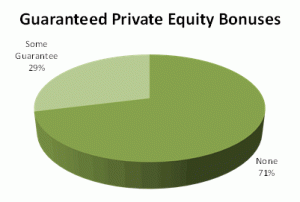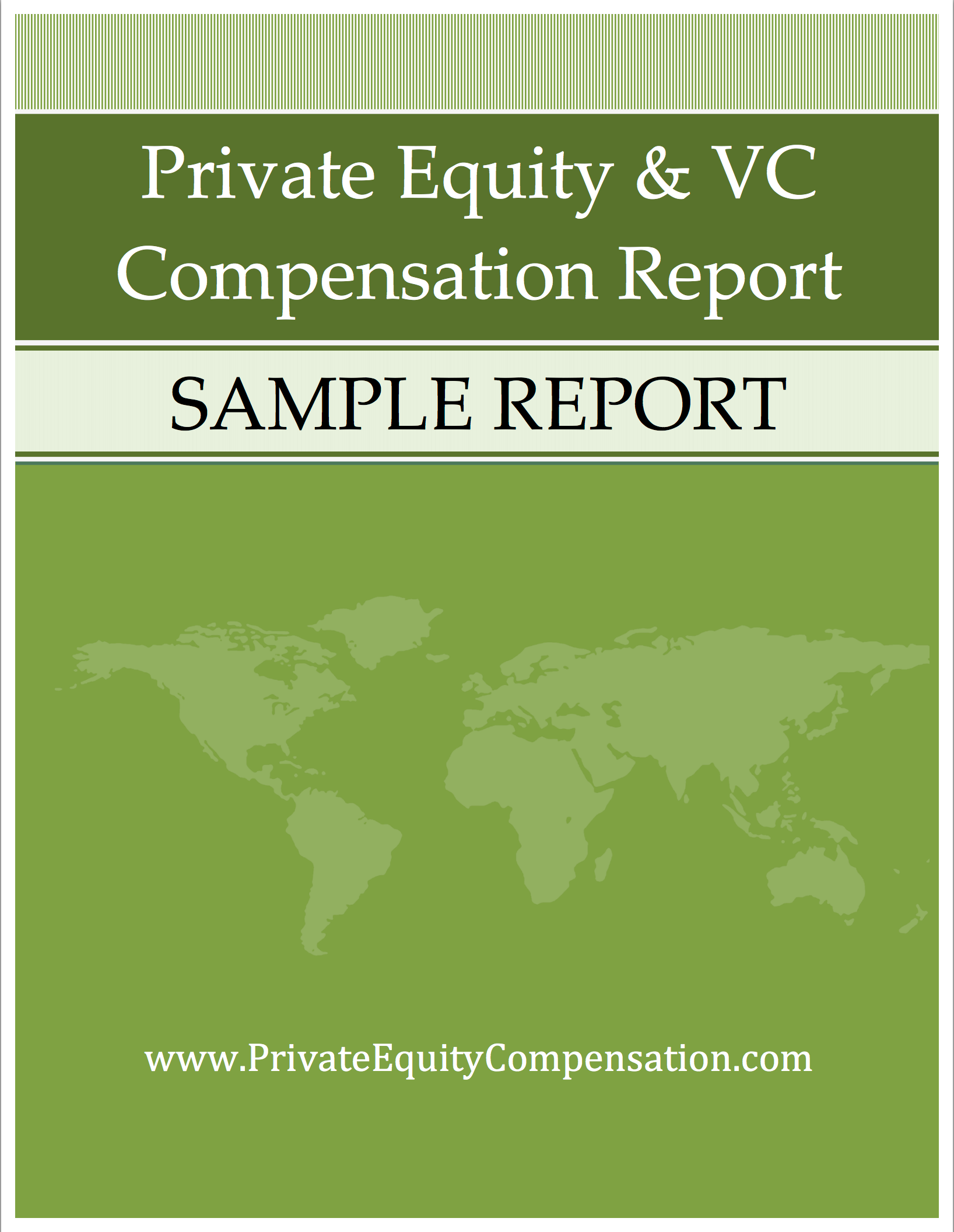May 25, 2012 | Industry
The private equity industry in the United States seems to be reaching maturity, as many new firms launch stabilized, ready-to-invest capital in the billions of dollars (nicknamed “dry powder”).
Fund-raising activity has continued through 2011, as smaller funds do most of the fundraising activity despite the fact that larger funds picked up most of the capital available. This demonstrates the imbalance in the private equity industry, with the average private equity firm on their first or second fund, typically with fund sizes of less than $500 million.
The days of focusing on financial engineering to the detriment of operational improvements are now over. The new focus of the typical firm is on cutting costs and increasing portfolio revenues. For private equity professionals, this means that operational management skill sets are increasingly in demand.
What These Changes Mean for Your Compensation
Now that the industry is maturing, private equity professionals can expect some positive changes to their compensation packages. Our research has indicated an optimistic outlook for salary and bonus increases, with most private equity and VC professionals experiencing a solid level of earnings in 2011.
Compensation for almost every level of professional, from employee to partner, has increased, with many benefiting from double-digit increases in compensation. The annual average compensation for private equity and VC professionals increased 6 percent to $248,000 USD.
What to Expect at Smaller Firms
The trend towards higher compensation is benefiting employees at firms of every size. For smaller firms (less than 25 employees), total compensation has also increased dramatically. As larger firms pick up their hiring, smaller firms have needed to adjust their remuneration packages or risk losing talent.
Salary Increases in 2012 and Beyond
The good news for private equity professionals continues: We expect that these trends will continue to increase total compensation throughout 2012. More than 40% even expect double-digit increases, with most professionals looking forward to a pay rise of some sort this year. While not all workers are expecting a pay rise, these trends are helping to stabilize the industry and provide an overall highly positive outlook for the future.
Feb 18, 2012 | Industry
Carried interest, often known simply as ‘carry’, is an incentive provided to private equity fund managers to ensure their interests are aligned with investors. Rewarded to fund managers on top of their management fees, carry is a percentage of the fund’s profits and plays a big role in private equity compensation.
On average, carry is about 20% of the fund’s profits. However, this can range up to as high as 50%, or way down to below 10% of the fund’s profits. With increasing competition from different firms to attract investor capita, carry is often decreasing as fund managers try to outdo each other to win investment.
While this general concept applies across the industry, it’s important to note that there are many different carry structures with varying complexity. More established firms with a good investment history have more favorable carry structures, while newer firms are often at a disadvantage.
Why is carry received by fund managers?
With the amount of work required to turn an investment into profit, it’s believed that carry is justified on top of management fees. Before investing, due diligence requires significant analysis, among other work. Once capital is invested in a company, fund managers must get involved in business operations and strategy, restructuring, and business development to make the most of their fund’s investment and maximize profitability.
How often is carry rewarded?
To encourage long-term profitability, investors prefer multi-year vesting periods. Typically, carry will be vested for 3-4 years, ranging anywhere from 1 year to 6 years in rare cases.
Who receives a share of carry?
Private equity firms often share carry between current teams, and old or existing owners. Retired partners also receive carry after their equity is bought or when they retire.
Among the current team, who receives a share of carry comes down to the years of experience of an employee. Only 14% of private equity professionals with less than 2 years experience will receive carry, compared to 70% of those with 20+ years experience. The majority of private equity professionals with at least six years of work experience have some level of carry as part of their compensation package, making it essential to fully understand how carried interest can boost your remuneration.
Carried interest is an important concept in the private equity industry, with plenty of potential to increase your compensation and rewards. While carry varies between funds and firms, it’s essential to understand how it works to ensure your compensation is fair.
Dec 16, 2011 | Industry
Both Base Salaries and Bonuses are Up Again this Year Despite Some Job Security Concerns
SAN DIEGO, CA, December 19, 2011 — A report released today by PrivateEquityCompensation.com indicates the private equity and venture capital markets are continuing to enjoy increases in compensation and that the trend that will extend into 2012.
For the second year in a row, private equity professionals reported a solid increase in total earnings over the previous year, with the average cash earnings coming in at $248,000 USD, coming in the form of both increased base salaries and bonuses. The average expected increase was 6 percent and, again this year, more than 40 percent of professionals expected double digit increases over last year.
2011 brought with it plenty of fund raising activity and, it was clear from the report, the success of that activity was all over the board. The smaller funds continue to do most of the work, yet the larger funds get most of the money. This inequity is partially responsible for over half of respondents indicating they have some job security concerns.
 Despite smaller assets under management, employees at smaller firms reported higher earnings and some guaranteed bonuses. “We believe the demand for private equity talent in the larger firms is forcing the smaller firms to keep pace, in order not to lose their most talented players,” says David Kochanek, publisher of PrivateEquityCompensation.com.
Despite smaller assets under management, employees at smaller firms reported higher earnings and some guaranteed bonuses. “We believe the demand for private equity talent in the larger firms is forcing the smaller firms to keep pace, in order not to lose their most talented players,” says David Kochanek, publisher of PrivateEquityCompensation.com.
Different from past reports, the venture capital firms led the charge in base compensation increases; the downside this year was that their average bonus decreased. “That’s not totally unexpected as last year we reported that VC firms were paying the highest bonus percentages of all the firm types,” said Kochanek.
Last year, 85 percent of those reporting said their fund’s performance was in the black. This year’s expectations are a bit tempered, as 73 percent are projecting a positive year. Unlike last year’s Private Equity Compensation Report, this year there was a disconnect between fund performance and bonuses. If a fund was even or down, good sized bonuses are still expected and some even guaranteed.
Will this positive trend continue? “We believe 2012 will bring with it increased base salaries and healthy bonuses once again,” said Kochanek. “Expect continued demand for investment professionals and talented operationally-focused players to work in portfolio companies – even if the economy continues to show lackluster improvements.”
About The Report
The 2012 Private Equity Compensation Report is based on an industry survey conducted in October and November 2011. Data was collected directly from hundreds of private equity and venture capital partners and employees. The full report can be found at http://www.privateequitycompensation.com.
The Report has grown to be the most comprehensive benchmark for private equity and venture capital compensation practices. Some of the participating firms over the years include: 3i, Actis, American Capital, AXA Private Equity, Babson Capital Management, Bain Capital, Barclays Capital, BlackRock, Carlyle, Century Capital Management, Clairvest, Comcast Ventures, CPP Investment Board, Deutsche Bank, DuPont Capital Management, EDC Equity, EdgeStone Capital Partners, Global Environment Fund, Highland Capital Partners, Hilco Consumer Capital, Kaiser Permanente Ventures, Kayne Anderson, Mission Ventures, Mohr Davidow Ventures, North Atlantic Capital, Qualcomm, RBS, Safeguard Scientifics, SV Life Sciences, Siemens Venture Capital, Time Warner Investments, and Wellington Partners.
About PrivateEquityCompensation.com
PrivateEquityCompensation.com is a division of Job Search Digest, a web-based career service catering to professionals in private equity, venture capital, hedge fund and investment banking since 2002. Annually, the firm collects compensation data directly from hundreds of private equity and venture capital partners and employees from firms both large and small. The firm also publishes a blog on private equity and VC careers which can be found at www.InsideTheFirm.com

 Despite smaller assets under management, employees at smaller firms reported higher earnings and some guaranteed bonuses. “We believe the demand for private equity talent in the larger firms is forcing the smaller firms to keep pace, in order not to lose their most talented players,” says David Kochanek, publisher of PrivateEquityCompensation.com.
Despite smaller assets under management, employees at smaller firms reported higher earnings and some guaranteed bonuses. “We believe the demand for private equity talent in the larger firms is forcing the smaller firms to keep pace, in order not to lose their most talented players,” says David Kochanek, publisher of PrivateEquityCompensation.com.